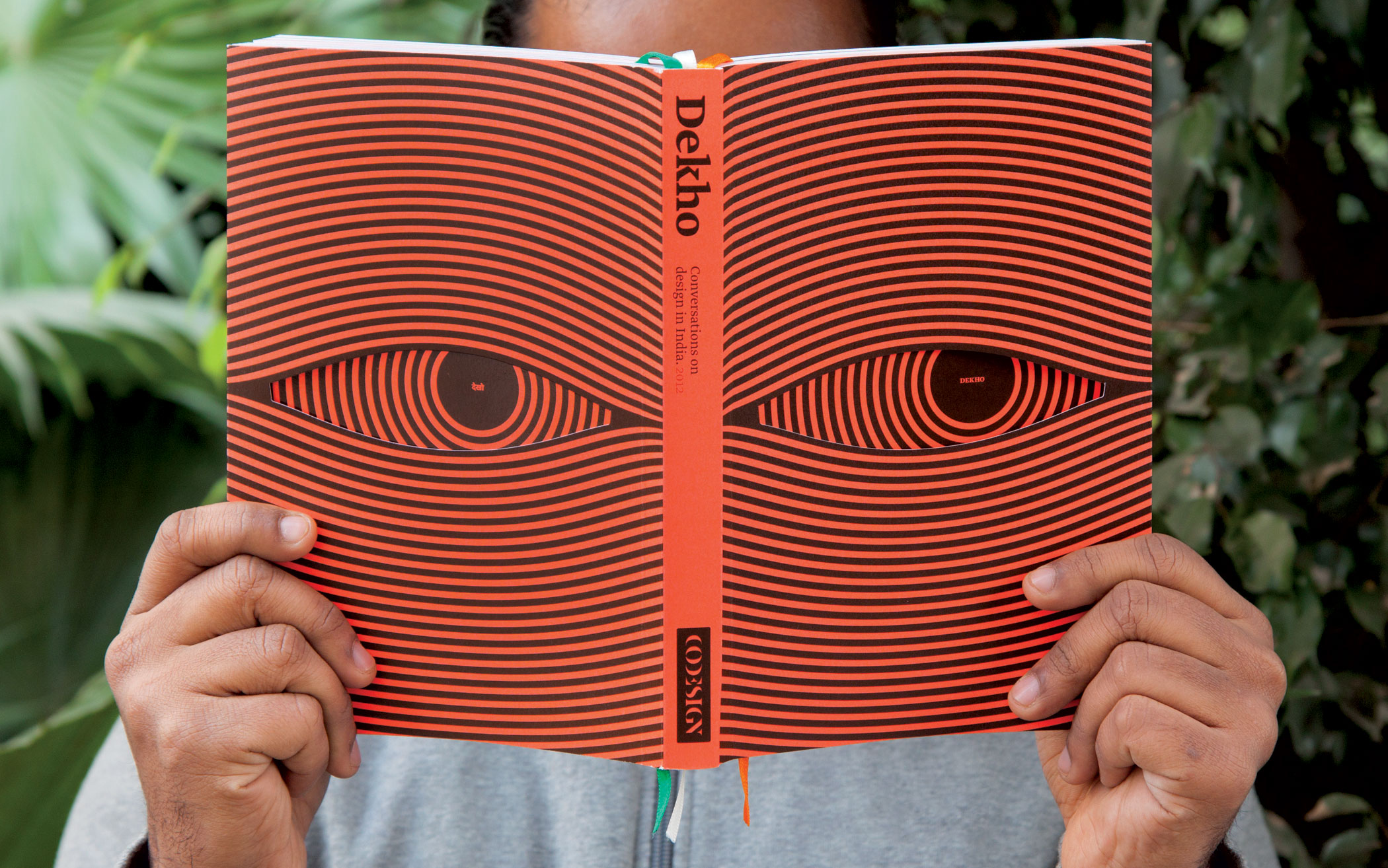

DEKHO is an award-winning anthology of inspirational conversations with designers in India, probing their stories for cues to the development of design in India and highlighting approaches that are unique to designing for India.
To understand the fine connections between tradition, culture, modernization and design, and to inspire a truly ‘Indian’ way of design, it is imperative that we nurture and create repositories of knowledge. This body of knowledge should provide room for introspection, for reflection. It should provoke new questions. Most of all, it needs to be real—honest and bold from the experiences of practitioners in India. This has been both the background and intent driving the inception and creation of Dekho.
“DEKHO offers me, at least, a different view and more hopeful feeling. It incorporates rather than segregates, it embraces rather than pushes away. It accepts the old and new, the modern and vernacular – in short it seeks to harness the power of design through the joy of design.” –Steven Heller

Dekho: Conversations on Design in India is the first of its kind effort at self-publishing an Indian perspective on the practice and context of designing for and in India. Since its release, Dekho has received mentions and laurels on both national and international platforms, lauding both the effort to build knowledge and discourse on Indian design and re-imagine the reader’s experience of the print medium.
D&AD Awards (In Book)
Design Museum’s Designs of the Year (Nomination)
CII Design Excellence Awards (Best of Show)
Kyoorius Design Awards (Best of Show)
Written, Edited, Designed, & Published by Codesign
Creative Head: Rajesh Dahiya
Editor: Mohor Ray
Design: Abhijith KR, Rajesh Dahiya
Interviews: Codesign team
Foreword: Prof. H Kumar Vyas, Steven Heller
Supported by: Codesign, Goethe Institut
“In the meditations it offers on Indian contemporaneity and design, Dekho captures a significant, pivotal moment.” –Elizabeth Glickfeld, A cornucopia of Indian design, Eye Magazine 86
“Dekho is a remarkable new book about design in India... The book examines work based in culture, research, and economic development. This is not a picture book of slick brands or vernacular truck signs. Instead, it is a thoughtful exploration of the processes and motivations behind a range of practices, from typeface development for diverse linguistic communities to co-design projects with rural craftspeople.” –Ellen Lupton, Designers & Books
“There are so few books out there whose content actually mirrors the subject they deal with. Dekho, with its design elements, layouts, co-habitation of the visual and the textual, and its sheer playfulness, tells the viewer-reader what the book he is holding in his hands is about even before he starts reading any of the pieces in it. And after reading them, the reader comes out with a double happiness as if from a train ride in an amusement park.” –Indrajit Hazra, Who the hell banished illustrations from (grown-up) literature? The Sunday Guardian
“This book is an important design introduction for a country bearing traditions, colonial baggage and cut-and-paste pastiche that passes for creativity.” –Shiny Varghese, Out of the Box, Indian Express
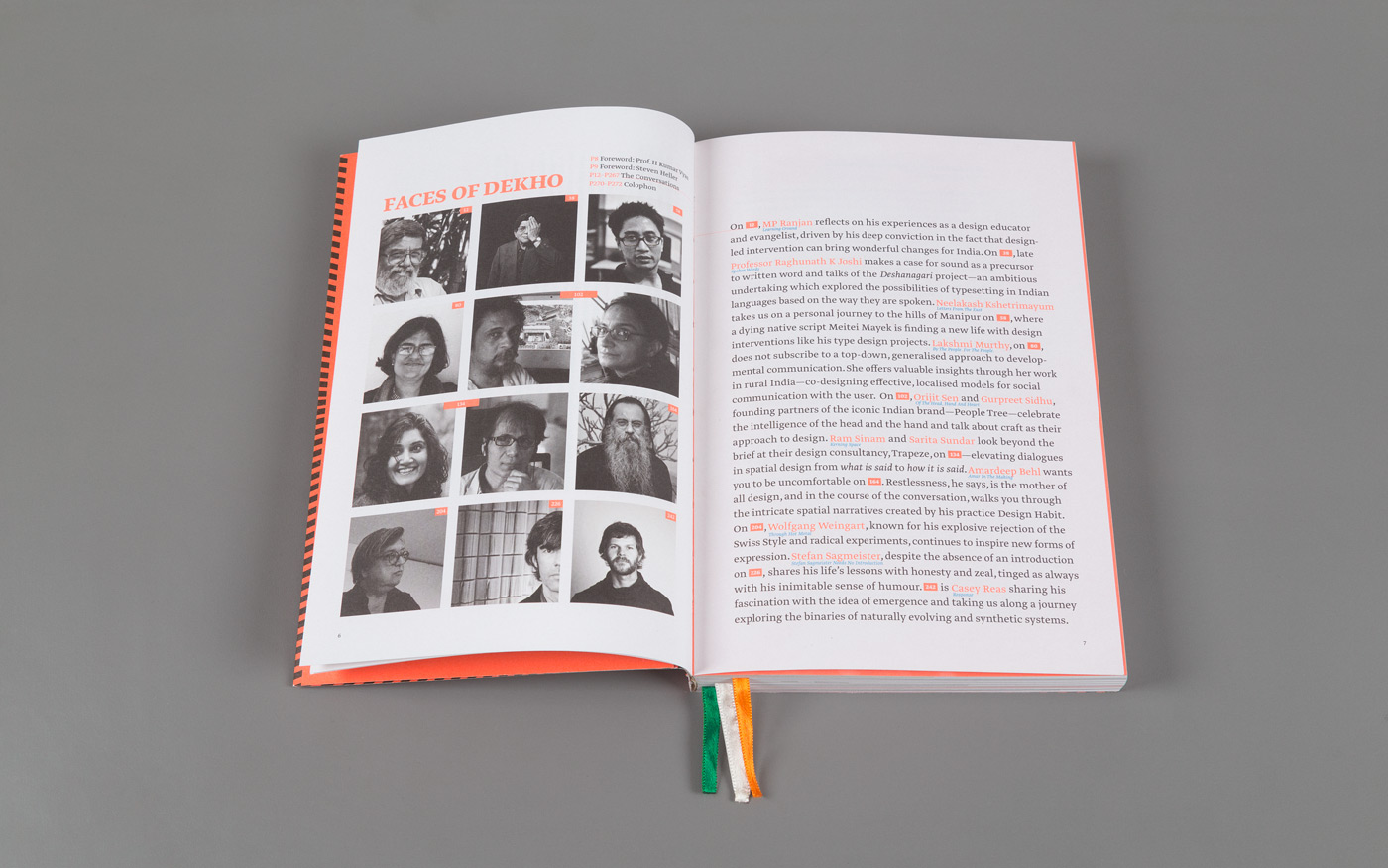
On 12, MP Ranjan reflects on his experiences as a design educator and evangelist, driven by his deep conviction in the fact that design-led intervention can bring wonderful changes for India. On 38, late Professor Raghunath K Joshi makes a case for sound as a precursor to written word and talks of the Deshanagari project—an ambitious undertaking which explored the possibilities of typesetting in Indian languages based on the way they are spoken. Neelakash Kshetrimayum takes us on a personal journey to the hills of Manipur on 58, where a dying native script Meitei Mayek is finding a new life with design interventions like his type design projects. Lakshmi Murthy, on 80, does not subscribe to a top-down, generalised approach to developmental communication. She offers valuable insights through her work in rural India—co-designing effective, localised models for social communication with the user. On 102, Orijit Sen and Gurpreet Sidhu, founding partners of the iconic Indian brand—People Tree—celebrate the intelligence of the head and the hand and talk about craft as their approach to design. Ram Sinam and Sarita Sundar look beyond the brief at their design consultancy, Trapeze, on 134—elevating dialogues in spatial design from what is said to how it is said. Amardeep Behl wants you to be uncomfortable on 164. Restlessness, he says, is the mother of all design, and in the course of the conversation, walks you through the intricate spatial narratives created by his practice DesignHabit. On 204, Wolfgang Weingart, known for his explosive rejection of the Swiss Style and radical experiments, continues to inspire new forms of expression. Stefan Sagmeister, despite the absence of an introduction on 226, shares his life’s lessons with honesty and zeal, tinged as always with his inimitable sense of humour. 242 is Casey Reas sharing his fascination with the idea of emergence and taking us along a journey exploring the binaries of naturally evolving and synthetic systems.
The conversational format of Dekho, stems from the latent richness that is at the core of conversations, as opposed to a commentary or report. The conversations focus on issues and ideas that are pertinent to the maturing of design in India, ranging from inclusive approaches to developmental communication, revival of dying Indian scripts, to the future of design education and the building of an iconic Indian brand by design entrepreneurs. The voices in this edition of Dekho include eminent design-thinker & educator MP Ranjan, indigenous type design pioneer late Professor Raghunath K Joshi, development communication expert Lakshmi Murthy, founders of iconic craft-driven brand People Tree: Orijit Sen & Gurpreet Sidhu and museum designer Amardeep Behl, amongst others. The presence of international voices of graphic designer Stefan Sagmeister, typographer & educator Wolfgang Weingart and new media artist Casey Reas present stories that contain relevant cues for contemporary design development in India.
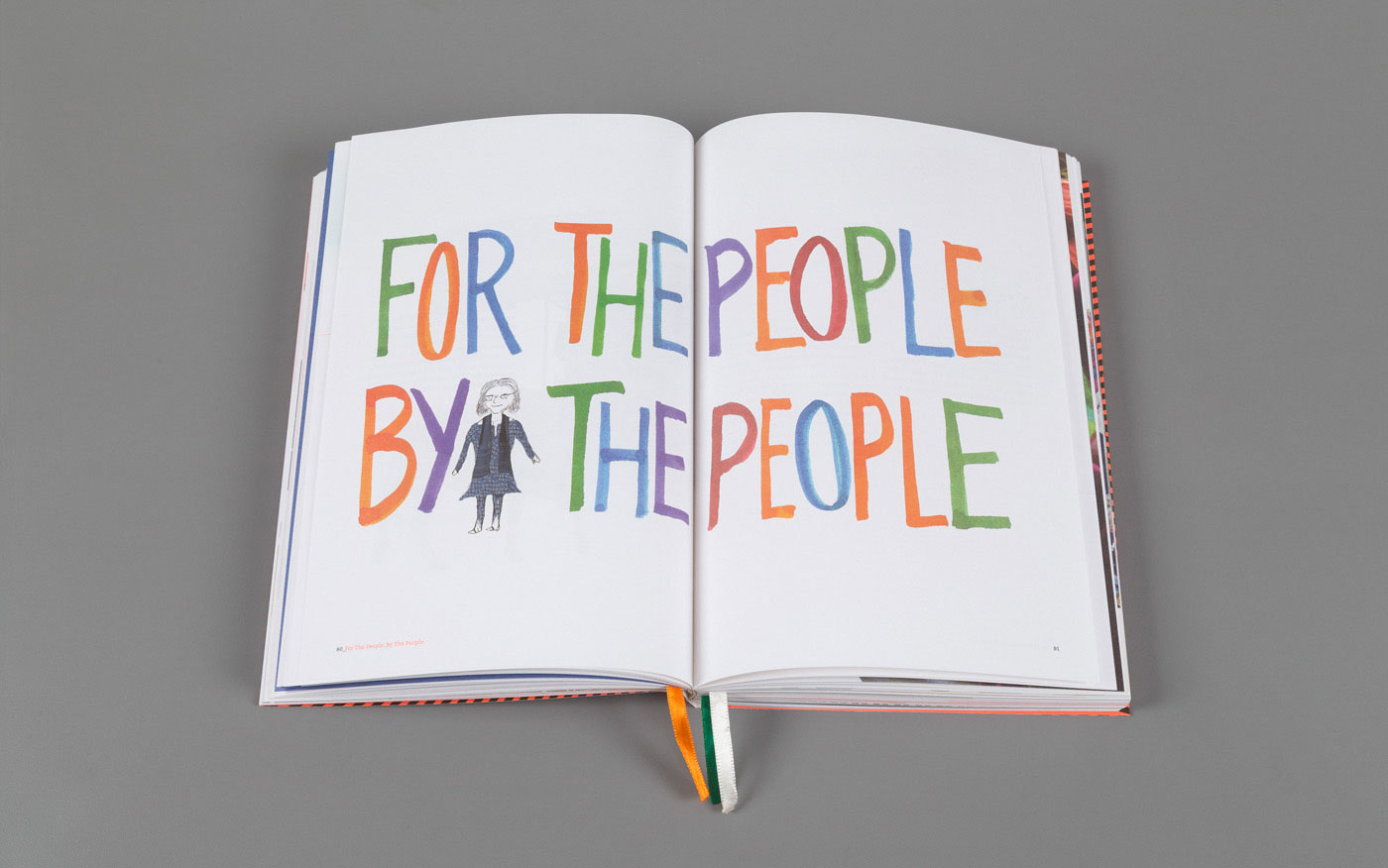
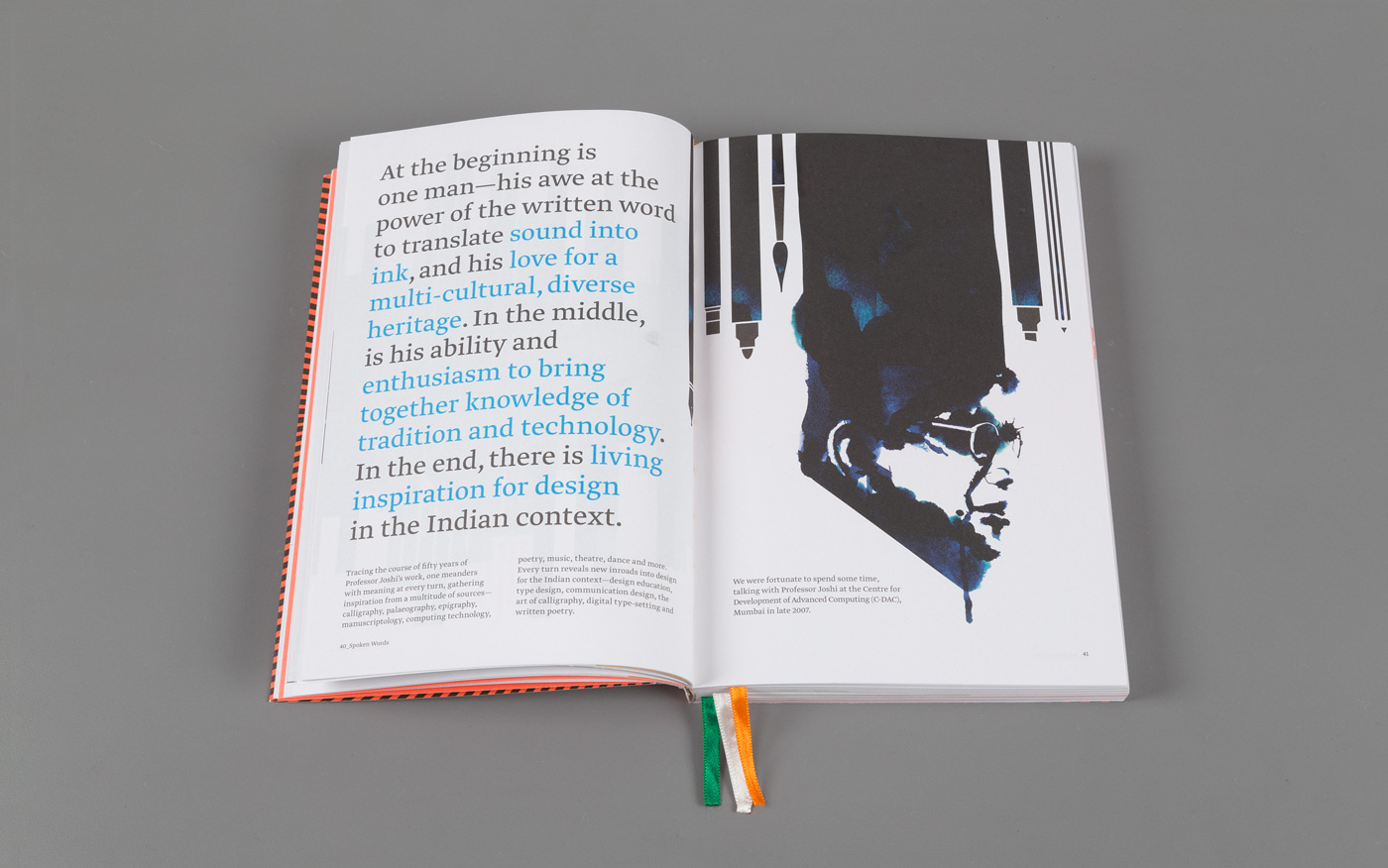
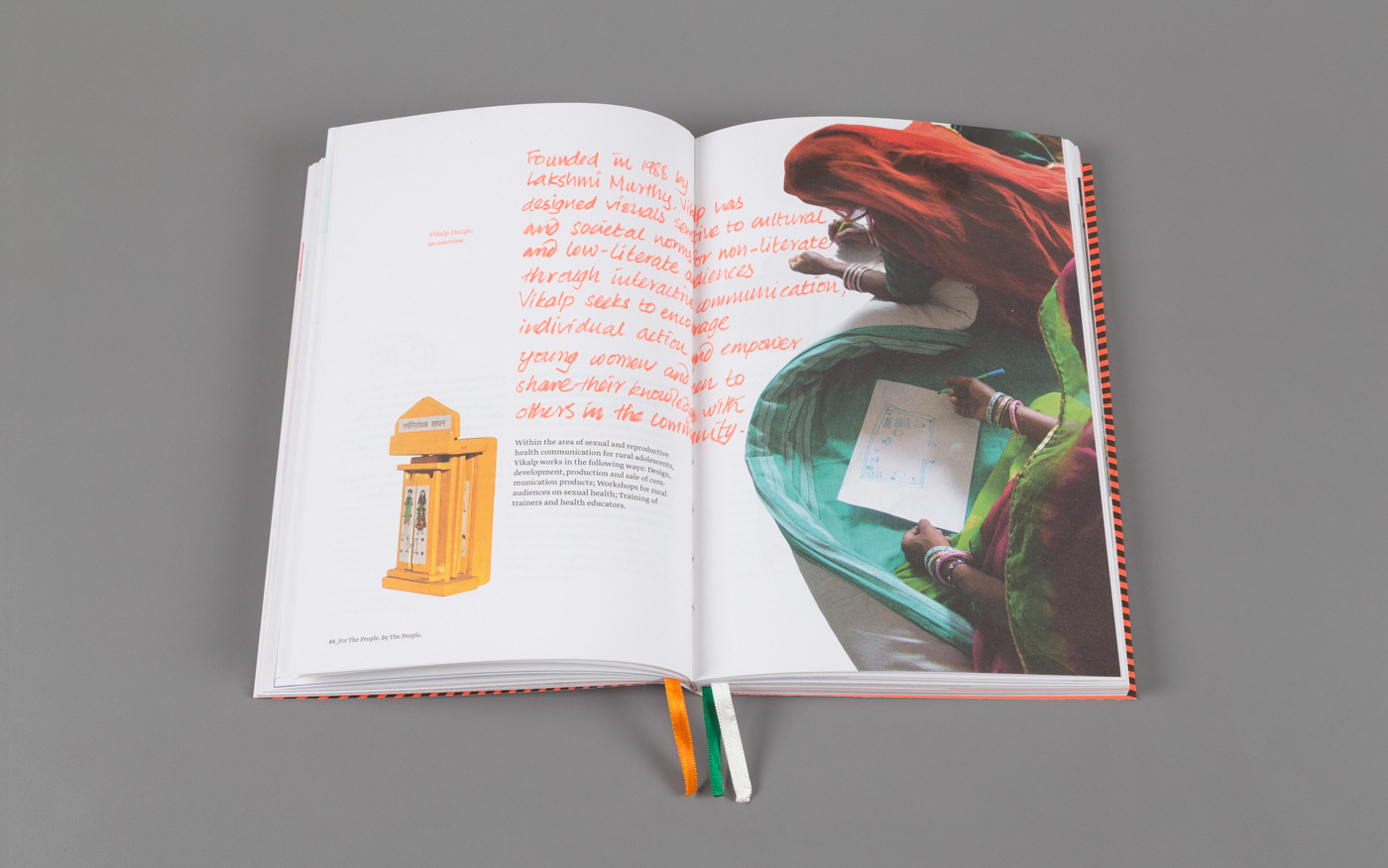
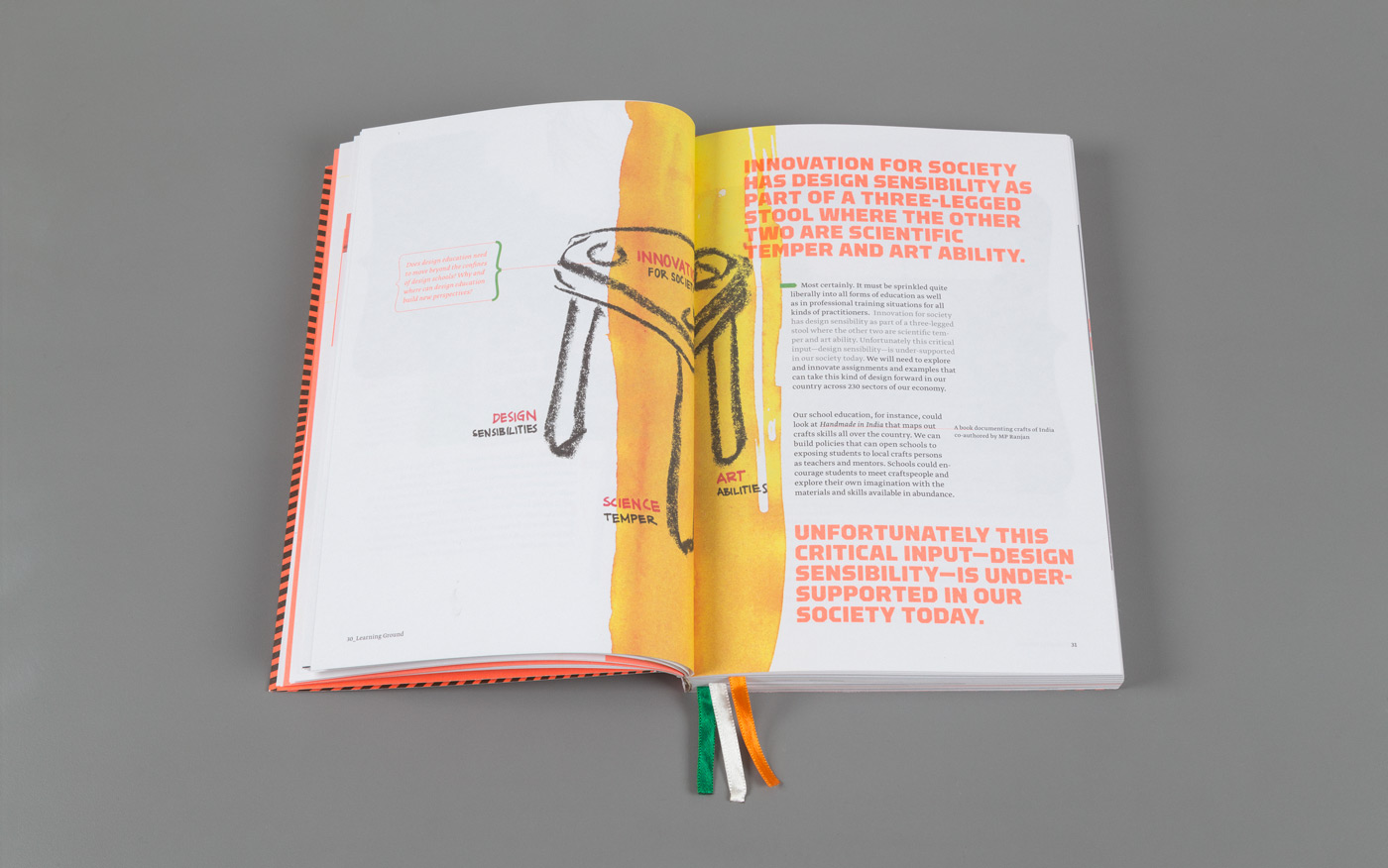
Book design in India has been largely relegated to two extremes—academic and textual, or showcase-based, ‘coffee-table’ publications. Dekho explores possibilities in print design—driven by individual stories. Design for Dekho is a rich visual narrative that creates an experience of the unique context of each person, their work and their ideology. The book is designed to not just be read from start-to-finish; but with multiple layers of image and text, it is meant to be experienced anew, with each new story and each new page.
Delhi:
People Tree 08, Regal Building Parliament Street, New Delhi. Tel: +111-23744877
Mumbai:
Kulture Shop Hill View 2, No. 201, 241 Hill Road, Bandra West, Opposite Mehboob Studio, Mumbai. Tel: +9122-26550982
Goa:
People Tree 6 Assagao Cursino Villa House No. 6, Saunto Vaddo Assagao, Goa. Tel: +91832-2268228